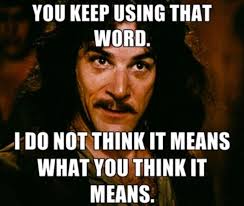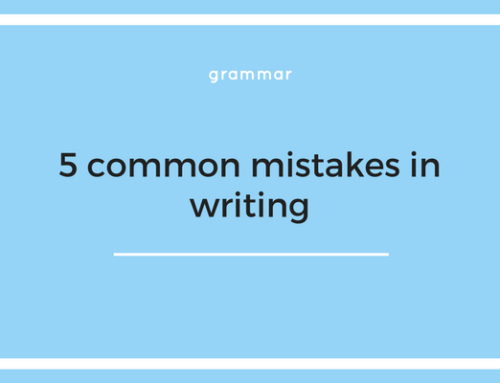
We’ve all been there: You’re deep in a riveting conversation and reach for a smart-sounding, multi-syllable word to make a point. Once it’s out there, you hesitate slightly, wondering if the word you used is the right one.
This list is not about those ten-dollar words. The ones you secretly look up on your phone to see if you’re using them correctly. No. This is a list of words that you are probably blissfully unaware that you’re misusing. A couple of the words on this list have been misused to the point that their meanings are evolving. And that’s okay. It’s how language works.
1. Poisonous.
Rattlesnakes aren’t poisonous – they’re venomous. Cyanide is poisonous. Poison ivy is poisonous. Something that produces a toxin when touched or ingested is poisonous. An animal or insect that injects venom is venomous.
2. Infamous.
Infamous means that you’re well-known for a negative reason or quality. When someone is infamous, it’s not a good thing. (Unless, of course, you believe the old adage “There’s no such thing as bad publicity.”)
3. Disinterested.
You probably mean uninterested. Disinterest means impartial or unbiased. A disinterested person has no stake in the outcome. If you’re bored or indifferent, you’re uninterested. So, if you’re on trial, you want a disinterested judge, not an uninterested one.
4. Peruse.
This is a big one. I see it used incorrectly all the time. Peruse means to read through or examine carefully. It does not mean to skim. If you perused a magazine, you looked at every page.
5. Redundant.
Redundant is a synonym for superfluous. It doesn’t mean repetitive. So, if your friend is telling you the same story over and over, he’s being repetitive (and annoying). In an essay, if you write the same word twice, it’s repetitive. If you write the phrase “free gift,” it’s redundant. (A gift is always free, therefore, the word free is unnecessary.)
6. Hone.
Hone is a verb that means to sharpen. If you want to focus your attention on something, you don’t “hone” in on it, you home in on it. You might hone your skills, but you home in on the problem.
7. Plethora.
When you have a plethora of something, you have an excessive amount. Don’t use plethora when you mean “a variety” or “an abundance.” Having a plethora of choices, means you have too many.
8. Compelled.
To be compelled is to be forced. A guilty conscience might compel you to admit guilt. If you do something voluntarily, you are impelled to do it.
9. Penultimate.
This is a funny word to me. It looks/sounds like it means something it doesn’t. Penultimate is simply the next to last thing. If there are 20 chapters in a book, the penultimate chapter is 19. Originally, when someone said ultimate, they meant “last.” Now, we also use it to mean “the best.” So, penultimate, to me, sounds like it would mean better than the best or second to none. But, it’s just “next to last.” Ho-hum.
10. Nauseous.
If you are nauseous, you are causing someone to feel sick. If you’re going to throw up, you’re nauseated. Nauseous gas makes you feel nauseated. I think most everyone interchanges these words. Only purists would object — and that would make you nauseated.
Don’t underestimate how essential outstanding writing is to the success of your business. Any content you produce should be engaging, original, and error-free. Don’t have a professional writer or copyeditor on your staff? I can help you produce polished, professional web content, blog posts, news releases, and other marketing materials for your company that will attract new business and boost brand awareness.




